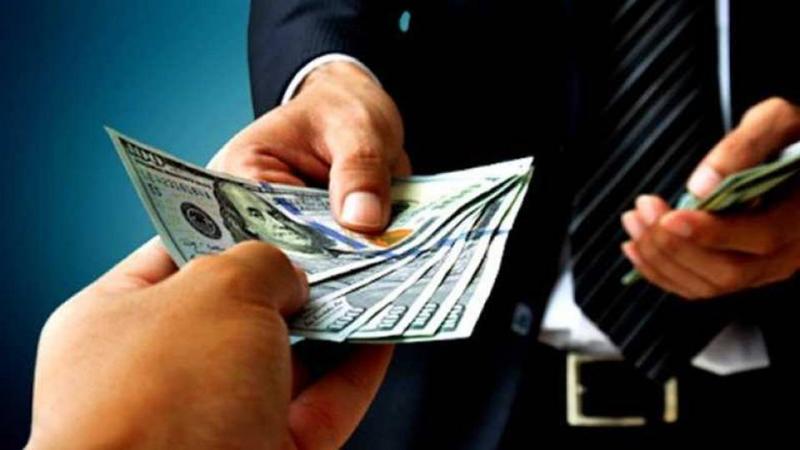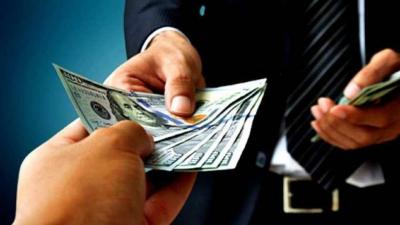Financial and banking circles have observed a rising qualitative shift in the internal political decision-making centers, leaning towards a comprehensive decision to reconsider the approval by Prime Minister Najib Mikati’s government, in its last constitutional session, of the economic and financial recovery plan. This plan is fundamentally lacking broad internal support, as required by the International Monetary Fund (IMF), and has faced extensive objections from all economic bodies and professional syndicates.
A senior financial official informed "Asharq Al-Awsat" that these negative echoes have indeed reached the ears of the team concerned with the Lebanese file at the International Monetary Fund and have automatically made their way to the corridors of its management. There are incoming signals that may later be translated, if necessary, into a "disavowal" of the accusation of imposing ambiguous formulations in the plan's entries, particularly regarding placing the heavier burden of recovery on the shoulders of depositors in banks, as part of a strategy to absorb estimated losses of about $73 billion.
It was not incidental in this context that Mikati himself expressed, in a television interview, his readiness "to explain, discuss, and amend." Meanwhile, the financial official indicates that the optimal choice necessitates bridging the gap created by the economic team’s insistence on working behind high walls during the preparation period. Thus, the priority should be to subject the methodology of the plan and its approaches to participatory dialogues in the economic and social field, within previously defined timelines, before reaching the new parliament, which is unlikely to rush to cover the government step legislatively, especially after the previous parliament showed no response, even minimally, to approve a package of preparatory laws despite their conditional nature from the Fund's team.
At the forefront of this list of prerequisites set by the Fund's management is the approval of the 2022 budget law, the proposal for capital control, and amendments to the banking secrecy law, among others.
Additionally, according to the official, it is unlikely that any new government would accept the growing pressures facing the plan and its entries, which hold a vital and sensitive significance at a constitutionally ambiguous timing. Therefore, it can be speculated that the plan's journey has "frozen" initially under the current approval format. There is no indication that it will flow again along the specified path that the government aimed for in a period filled with constitutional obligations, including all central authorities, starting from the new parliament to the election of a new president, and in between, the awaited discussions on the possibility of forming a new government or linking it to the start of a new era after the mandate of President Michel Aoun ends at the end of October.
Indeed, it has been noticed that a new dynamic has begun to spread among economic and syndicate circles competing to pump rectifying proposals, especially addressing the core of the plan related to the distribution of responsibilities and losses. There is also a strong apprehension of imposing at least $40 billion in losses on depositors out of the approximately $60 billion proposed to be "wiped out" from the central bank’s liabilities due to banks’ investments, which places immense pressure on arriving deputies and the political parties that received parliamentary representation from the latest elections mid last month.
A discussion has emerged within the developments aimed at refining the plan, reflecting significant banking propositions based on scientific and objective methodologies that can be crystallized and garnered support from all relevant authorities and components. The essence is to abandon the "passion" for presenting depositors and the banking system as scapegoats on the altar of the promised agreement with the International Monetary Fund and instead to replace it with a rightful distribution of responsibilities and burdens and to create the best conducive environment for productive solidarity among stakeholders as a necessary partnership between the state, the private sector, and society at large, most of which is below the poverty line.
In the approach attributed to the senior banker: "There are two ways to resolve predicaments, either by cutting them or by devising solutions even with some effort. The facile erasure of deposits will never be the most effective solution. Deductions from citizens' savings through a plan that erases more than 75% of deposits to cover a $60 billion gap at the Bank of Lebanon, which is the responsibility of the state in principle, will only meet rejection from depositors and banks alike."
Therefore, the most feasible proposal is for the state to commit from now on to allocate 20% of net revenues from gas and oil to fund a dedicated fund for this purpose; thus, each depositor would receive a share proportionate to their bank deposit size, which keeps hope alive for the depositor not only to potentially recover their savings but also to gain profits in case quantities exceed current expectations or if gas and oil prices rise globally, thereby hitting the intended goal of not directly or indirectly annihilating deposits, without placing any burdens on the state that it cannot currently bear, in addition to safeguarding 20% of gas and oil revenues from political patronage and corruption.
This proposal ensures the opportunity for all Lebanese to participate and invest in their oil wealth and allow those willing to exit their deposits through financial markets to liquidate their share with a discount determined by the market. It also encourages foreign investments and financial inflows in foreign currencies to Lebanon if global investment funds decide to purchase shares in this fund, as well as reviving Lebanese financial markets if these shares are traded, while retaining 80% of oil wealth revenues to restart the economic wheel.
In the backdrop of the proposal, it is clarified that "there is great hope for gas discovery off our shores, otherwise there would not be this conflict over our waters internationally and regionally. Additionally, several surveys conducted by specialized companies, including the Norwegian company (Spectrum), estimate gas reserves in Lebanon's territorial waters between 25 to 96 trillion cubic feet, not to mention the expected oil reserves as well. Therefore, the wealth from gas and oil could range between $300 and $1000 billion. Based on Lebanon’s net share of around 50% of overall production, this means that the expected net revenues for Lebanon could range between $150 and $500 billion."
Concurrently, former ministers, academics, and economists, including former Minister of Economy and Trade Samir Makdisi, former Finance Minister George Qara, and Lina Al-Tannir, a business management professor, among others, issued an open letter to the members of the new parliament regarding the government’s financial recovery plan.
In the proposed conclusions: "The safest and best path to safeguard the rights of savers and preserve the future of the Lebanese economic system lies in the Central Bank’s acknowledgment of its debts in foreign currencies and its commitment to repay them in the same currency within specified deadlines over the coming years, according to a declared and credible timetable. This timetable can be revised as the financial situation of the Central Bank develops. In parallel with banking reform, banks should devise a complementary timetable for repaying their customers' deposits in foreign currencies to maintain the credibility of our banking system and the trust of Lebanese and non-Lebanese savers in its institutions."
The proposals also encompassed the creation of a solidarity fund managed by an independent and experienced group, tasked with managing some state assets (not selling them), and partially contributing its revenues to settle the debts of the Central Bank to the banks, enabling banks to program the repayment of their customers' deposits. Other sources, such as grants, could be relied upon to bolster the finances of this fund.




